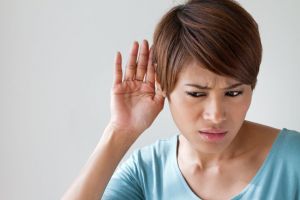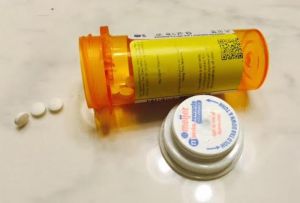If you or a loved one has suddenly developed hearing loss, see your doctor right away. While often downplayed as not serious, any new or sudden hearing loss should be taken seriously by both you and your healthcare providers. Why? The sooner you get a thorough audiological workup, the better your chances are for a full recovery.
Sudden hearing loss usually only affects one ear, and for those who don’t get better, permanent single-sided deafness can be the outcome. This kind of hearing loss, also known as unilateral hearing loss, presents unique problems, such as the inability to know where sounds are coming from, and something known as the “head shadow” effect.
What is sudden hearing loss?

sudden deafness in one or both ears.
Also known as sudden sensorineural hearing loss, or SSHL, sudden-onset hearing loss occurs all at once or over the course of several days. About one out of every 5,000 adults experiences sudden-onset hearing loss annually, though that number could be much higher due to the number of cases that go unreported and undiagnosed.
Men and women are affected equally, and the average age of first occurrence is typically mid-40s to mid-50s.
For most people, the immediate assumption is that they are suffering from allergies, an earwax blockage or sinus infection, so they might decide not to seek treatment—but prompt treatment is vital.
I can’t hear out of one ear. What should I do?
Sudden-onset hearing loss is considered a medical emergency, and prompt treatment might just save your hearing.
Sudden onset hearing loss is considered a medical emergency, and prompt treatment might just save your hearing.
But how do you know you have it? Symptoms vary. Some people notice when they wake up first thing in the morning that their hearing is different. Others don’t notice a difference until they hold the phone up to that particular ear or try to listen to headphones. In some cases SSHL is preceded by a very noticeable “pop,” which can be quite alarming. Afterward, some patients report a feeling of fullness in the affected ear or a strange feeling on that side of the head, possibly accompanied by tinnitus and dizziness. This is sometimes called “aural fullness.”
The cause is often unknown

factor in sudden hearing loss.
SSHL differs from other types of hearing loss in a couple of important ways. Aside from its rapid onset, it is often idiopathic, meaning the cause is usually unknown. A cause can be identified in only 10 to 15 percent of diagnosed cases. Some possible known causes, however, include:
Did a virus cause my hearing loss?
One of the most common causes of sudden hearing loss is a viral infection of the hearing nerve. The swelling that occurs in the affected nerve causes it to effectively become strangled in the narrow, bony canal that leads to the ear (the internal auditory canal). If it stays in that state for too long, the auditory nerve dies. That is why it is so important to seek immediate treatment—the window of time during which hearing can be saved in these cases is very narrow.
Testing for sudden hearing loss
If you suspect you might have SSHL, the first step is to make an appointment with a hearing healthcare professional. She may conduct a hearing test called pure tone audiometry to measure the hearing loss.
The test can also determine the range of hearing loss in decibels. SSHL will be diagnosed in the case of a hearing loss of at least 30 decibels in at least three connected frequencies. After diagnosis, she may order further tests in an attempt to determine an underlying cause. Blood tests, MRIs and balance tests are just a few examples that might help get to the bottom of your hearing loss.
If any of your healthcare providers are unwilling to thoroughly investigate your sudden hearing loss, seek a second opinion. As audiologist Dennis Colucci stated, healthcare providers must “understand that sudden hearing loss is a medical emergency. Without immediate action, there is likely to be less benefit and more burden to patients, their families, and the healthcare system.”
Treatment options
Although treatments for sudden hearing loss are still fairly limited, they are important: 85% of those who receive prompt medical attention regain some or all of their hearing. Corticosteroids are the most common treatment for SSHL. They work by helping the body fight illness, decreasing swelling and reducing inflammation. Usually administered in pill form, the steroids also can be given through an injection behind the eardrum.
This treatment via injection, called intratympanic corticosteroid therapy, is recommended for those who are unable to take oral steroids. Both treatments are equally effective, although the injections are known to be somewhat uncomfortable. Additional treatments may be necessary to treat the underlying cause, i.e. antibiotics for an infection.
Although 50 percent of those who experience SSHL spontaneously recover all or some of their hearing within one to two weeks, it is vital to seek treatment as soon as possible; the window to restore hearing closes two to four weeks after the onset of the hearing loss, meaning the hearing loss will then become permanent and irreversible. After that, treatments will focus on amplifying any remaining sound a person has, via hearing aids or similar devices.
The window to restore hearing closes two to four weeks after the onset of the hearing loss, meaning the hearing loss will then become permanent and irreversible.
If you experience sudden onset hearing loss, whatever you do don’t ignore it in the hopes that it will go away. Seeking treatment from a hearing professional immediately could make all the difference.
